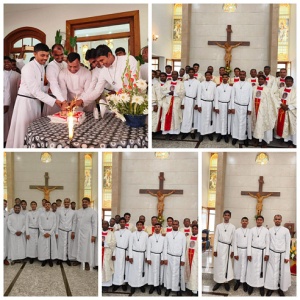Peter MALONE
Congratulations. Greg McCann 60 years professed today – and celebrating MSC Brothers.
Congratulations. Greg McCann 60 years professed today – and celebrating MSC Brothers.
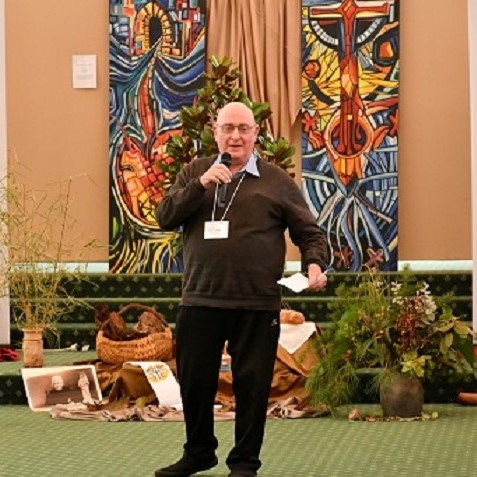
August 5th was one of the days for the profession of MSC Brothers in the past. Greg has had ministries in schools, both cooking and teaching, and spent years in China teaching English as a second language.
August 5th is a good day to take note of our tradition of Brothers in the Australian Province. Especially, with the coming General Chapter. It is hoped you enjoy reading about the Brothers in Australia below.
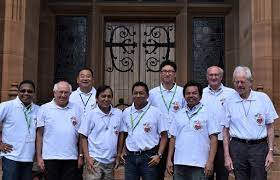
Brother Bernard Mongeau MSC is attending the Chapter and is preparing propositions for the Chapter. He notes that in 2017, Pope Francis addressed to the members of the General Chapter the following message:
“[…] the brothers in a congregation are a grace of the Lord. I ask you not to yield to the temptation of clericalism that, as I have often remarked, alienates people, especially the young, from the Church. May your common life be marked by true fraternity, which welcomes diversity and values the gifts of all.”
He remembers Mark MacDonald saying the same thing. In the Documents of the 2017 General Chapter, it is written under the article number 49:
“We believe that our understanding of the life and mission of our non-ordained members has been evolving over the past few years, due in part to our recognition of the dangers of “clericalism” in a religious Congregation. The focus is now much more on the fact that as Missionaries of the Sacred Heart, we are all religious. This means that our “Brothers” are not a special category within our Congregation. (Cf. Const. 28) All topics considered relate to all of us since we all have the same vows, the same charism, the same mission and form one and the same family. All around the world, we still have much to do in relation to this question. We need to promote vocations not to priesthood or brotherhood but to the Missionaries of the Sacred Heart.”
Bernard Mongeau introduces himself.
I am a member of the local community of Quebec in Canada belonging to the Province of the Dominican Republic since November 2022. I am an MSC brother since 1980. Before being an MSC, I worked in the administration of a large commercial company for nearly three years. In the novitiate, in 1979, the master of novices did not know what to offer me as a job. After speaking with the provincial treasurer, he invited me to work with him. That's how it all started. After my novitiate, I took university courses in administration and accounting. From 1993 to 2000, I worked in a popular education organization in Quebec. I worked as local treasurer and assistant provincial treasurer from 1980 to 2008 at the service of the MSC mission. I was provincial treasurer of Canada from 2008 to November 2022. Since the canonical fusion of our Province with that of the Dominican Republic, I am the treasurer and secretary of local community and the civil corporation. Since 2008, I am a member and administrator of an association of treasurers of religious institutes in the province of Quebec called ATTIR. This association offers monthly training days in administration, civil law and canon law, psychology and restructuring. I have never been on a mission outside my country. However, I visited on several occasions a poverty reduction and popular education project that we had supported in Nicaragua. I was involved in the file of the canonical fusion of our Province and the possession of our Mexican mission in the Province of Central America. I am also part of the General Finance Commission of the Congregation.
We take the opportunity to pay some tributes to MSC Brothers, Australia.
At times there were 100 Brothers in the Province. Robert South was the first, professed in 1899. A number of men joined us for some time and did not continue. There are 108 Brothers listed in our Necrology. We have 14 Brothers in Australia and one in Vietnam. They are named at the end.
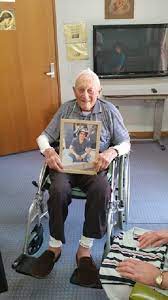
John Ehlefeldt
In the past the Brothers staffed colleges and houses like Kensington, Douglas Park, Scholasticates, later in parishes. Brothers cooked, cleaned, worked in farms and gardens, and in the Annals Office. With regret we look back at the separation because of first and second class status (and reinforced clericalism).
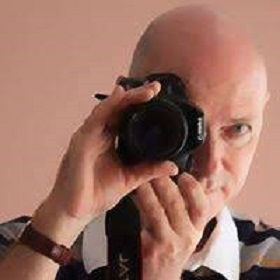
John Walker
Since the late 1960s a Brother has usually been a member of the Provincial Council. Brothers became Community Leaders in the 1990s, Peter Harvey Jackson, Douglas Park, Kensington, Melbourne, Phil Reilly Chevalier, Peter Curry Navarre House, John Walker Canberra, Barry Smith Douglas Park. Brothers have been bursars at provincial and community level, members of finance and building committees. From 1950 to 1990, Brothers were part of the General House community in Rome.

Gerry Burke
Tribute must be paid to the many Brothers missionaries in PNG and the NT, builders, boats, captains. Ted Merritt gained a pilot’s licence. Andy Howley was awarded a Churchill Fellowship in 1978 to study Native Americans in the US and was instrumental in setting up Alcohol Awareness and Family Recovery at Daly River (and later in Fiji, Kiribati and Samoa, and awarded Medal in the Order of Australia). Alan Kinnane was also involved. Alan was later ordained a deacon.

Barry Smith
In the 1970s, Brother began to teach and many to qualify in teacher training, moving into art, woodwork, dormitory supervision, infirmary, sport. Paul Brooks was Principal of St John’s Darwin. Education in English as a second language extended to China with Greg McCann. John Walker trained in nursing.
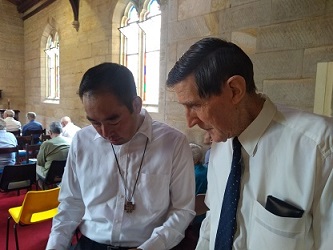
Peter Harvey-Jackson
Brothers have theology degrees, Peter Harvey-Jackson, John Walker, James Maher. Brothers have had overseas sabbaticals, for study, for experience. Since the late 1960s Brothers have worked in Formation, in recent times, Col Sinclair in the Pacific Islands Province, Peter Harvey-Jackson as Novice Master at Douglas Park.
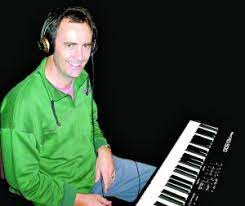
James Maher was a noted musician and composer.
Since the 1980s, Brothers have appointed to particular ministries, hospital chaplaincies, prisons, AIDS ministry. Ken Clancy had a visiting ministry at Croydon and mission support at Chevalier (and had a book written about him).

Our Brothers today:
Barry Smith
Col Sinclair
Gerard Shanley
Greg McCann
Henk Bosman
Jac Boelen
John Frith
John Walker
Josef Senjuk
Paul Bowen
Peter Curry
Peter Harvey-Jackson
Phil Reilly
Reg Pritchard
And Hung leading the way in Vietnam

Col Sinclair and the Pacific Island pre0novitiate group
The Chevalier Family message for the First Friday – and the 2023 theme of Laudato si.
The Chevalier Family message for the First Friday – and the 2023 theme of Laudato si.

And noting that this weekend we have the 78th anniversary of the dropping of the atomic bomb on Hiroshima, and then Nagasaki. The popularity of the film Oppenheimer at the moment has drawn this to a worldwide audience.



MSC Alive – growth around the congregation
MSC Alive – growth around the congregation
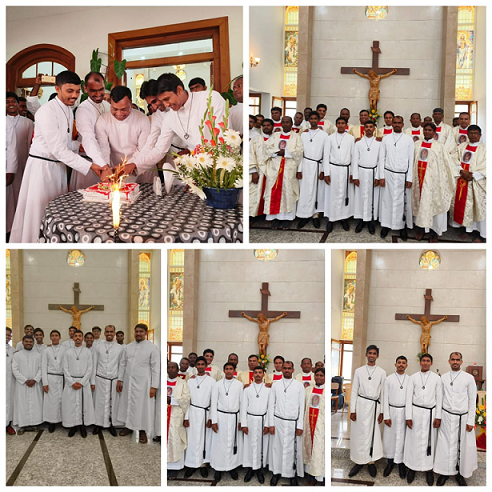
In India
MSC Indian Union was indeed on joyous mode during the celebration of First Profession of Brothers Jaswin &Vijay kumar and the Final Profession of Brothers Karthik and Sesu Raj on 2nd June 2023
In the Philippines
We welcome officially our brothers Kent Canete and Ryan Coronel to our Scholasticate community.
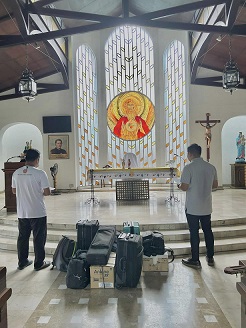
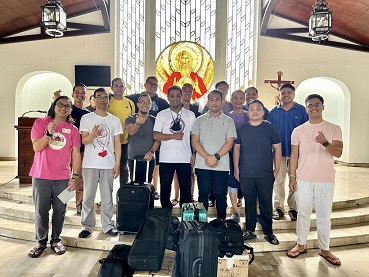
Our Vietnamese brother, Minh Nguyen was invested the MSC religious habit together with three Filipino brothers.
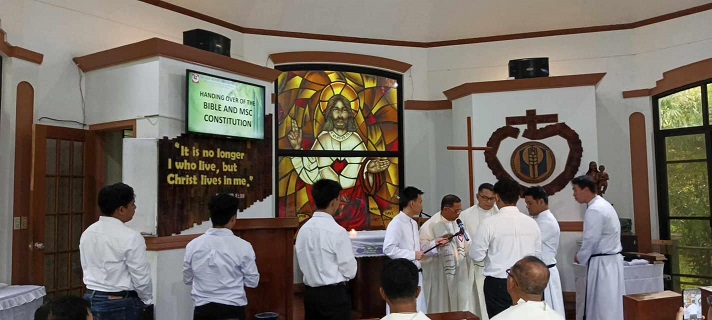
With a grateful heart, the Missionaries of the Sacred Heart - Philippine Province joyfully announces the First Profession of Religious vows of Novice Rhyane R. Coronel and Novice Kent S. Canete and the Perpetual Profession of Religious Vows of Frt. Primitivo P. Danao Jr., MSC and Frt. Melvin S. Ellaga, MSC. August 2nd 2023.
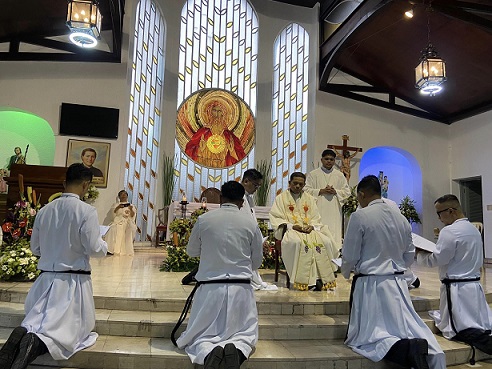
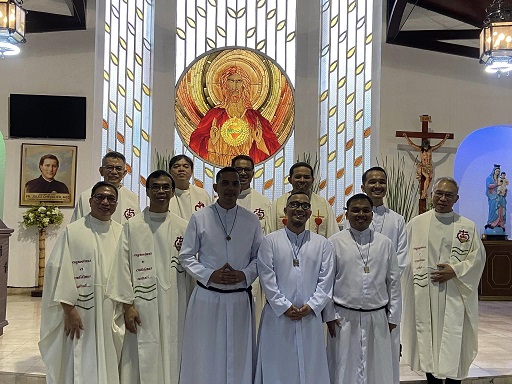
And in the middle of August.
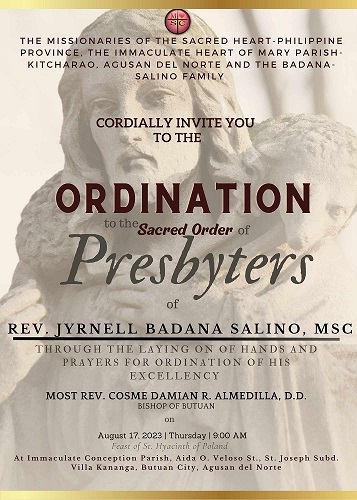
Meanwhile in Latin America
In Brazil
Priestly Ordination of Emanuel Elisclibes, 1st May. Ordaining Bishop: Mgr Valentine, MSC


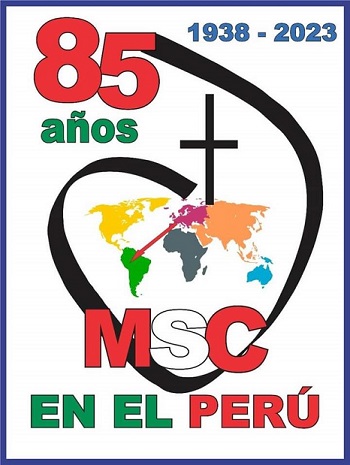

In Peru
Hiding Place, The/ 2023
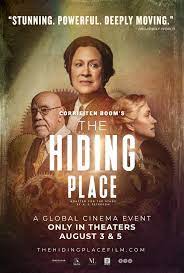
THE HIDING PLACE
US, 2023, 143 minutes, Colour.
Nan Gurley, John Schuck, Carrie Tillis.
Directed by Laura Matula.
The first thing to say is that this is a very worthy drama. It is the story of Carrie ten Boom, her sister, Betsy, her father and extended family, who saved 800 Jews during World War II, hiding them in their house in Harlem, Holland. It would be seen as a complementary story to The Diary of Anne Frank. Corrie ten Boom wrote the story of the hiding of the Jews as well as the internment of Betsy and herself in Ravensbruck concentration camp. There was a faith-based version of the story in the 1975 film of the same name, starring Julie Harris as Corrie.
The second thing to say is that this is a filmed version of a theatrical performance. On the one hand, it is valuable to have a version of a theatre event. On the other hand, the audience response to a filmed play is different from that for the cinematic treatment of a drama. The staging is very much stagebound. It is over to the inventiveness of the director and camera crew, and editors, to find the right angles, the close-ups, movement, for a cinematic response. The performances can be very much stagebound as well, theatrical, dialogue sometimes rather rhetorical, stylised.
Having said that, it is to the credit of Rabbit Room Theatre to have staged The Hiding Place, written by A.S.Peterson based on the book. And, to their credit, that they have filmed a performance in Nashville.
The theatrical effect is immediately evident as members of the cast come on stage, suitcases, searching, indication of what is to come. Throughout the play, the older Corrie ten Boom speaks to the audience, is interrogated by a Nazi official, but with some scenes of flashbacks, to her watchmaker father and his shop, to her sister, Betsy, and the love in the family.
However, the main action is the beginning of the invasion of Holland, Jewish refugees, the Dutch underground sheltering the Jews, finding food cards to sustain them, eventually coming to the ten Boom shop, being hidden, being fed, able to be moved on – with, as has been noted, 800 Jews saved from being taken to the concentration camps. The ten Booms were Dutch Calvinists, so a strict interpretation of God’s will, of Christian love, and it being tested by extremes, the challenges of forgiveness. This is particularly the case when an arrogant young German comes to work in the shop, smugly superior, eventually joining the army, patrolling in Harlem, seen at Ravensbruck – and, at the end, the focus for Corrie and forgiveness.
Nan Gurley is particularly forceful in the role of Corrie, not a simple saintly character, but generous, fearful, angry, challenged by Christian charity demands of forgiveness.
There is some tension in the hiding sequences, even more tension when the family is arrested, taken prisoner, then to the concentration camp, the father dying, Betsy, eventually dying, Corrie and the women in the camp – and her surprising eventual release, attributed to a clerical error. The war ends. Corrie returns home, meets the underground members who have survived, wants a memorial to what has happened, begins her travels around the world and her writing to continue the mission of remembrance, the sufferings and death in the Holocaust and the consequences for the world.
1. The story of the ten Boom family, World War II, Holland in Harlem, the Nazi invasion, Jewish refugees, hiding the refugees? A story complementary to that of the Diary of Anne Frank?
2. Corrie and her books, her campaign after the war? The Hiding Place, its impact after the war, the film version of 1975, a faith-based film? This version?
3. The adaptation for the stage, the writer incorporating the key themes of the book, the flashbacks to the girls’ childhood and their relationship with their father, the situation of the war, the hiding of the Jews, the arrest, the concentration camp life, Betsy’s death, Corrie’s release?
4. A filmed version of the theatrical performance, the role of the camera, close-ups, framing, scenes, the stage? Performances, theatrical, rhetorical, humane? The musical score?
5. Audience response to filmed plays, as different from cinema responses? To staging and confinement to the stage, particular focus points of the camera, close-ups et cetera? The spoken dialogue?
6. The opening, the cast coming onto the stage with their suitcases, indication of themes? The focus on Corrie, her age, her reminiscences, the scenes of her childhood, the devoted father, sister and brother, the shop and the watches? The focus on the train travel, lifting the heavy case, images used later?
7. The framework of Corrie, the Nazi officer, the interrogation, the flashbacks to the various stages of the war, her inhuman honesty, the underground and resistance, having to lie to the German authorities?
8. 1940, the Nazi invasion, Otto coming from Germany to work in the shop, young, arrogant and superior, despising the family? The war breaking out, his enlisting, his arrogance in the Army, towards the family, the later encounter in the concentration camp?
9. The situation in the family, the brother, his social concerns and work, Betsy more fragile, in the shop, Corrie with strength, helping her father? The father, personality, the Dutch Calvinist tradition, Christian ethics?
10. The invasion, difficulties, food and rationing cards? The underground and the connections, David, his links, network, Mr Pickwick?
11. The Jewish refugees coming to the door, the response of the family, the increasing numbers, hiding the Jews, the transition for many to hide and then move on, the issue of the food tickets, Corrie going to the man in charge, persuading him, the many tickets, feeding the refugees? The building of the hiding place?
12. The Germans, Otto, intruding into the house, the search – and the irony of Betsy in the kitchen and the couple hiding under the table, the joke about under the table and the Germans not looking?
13. 800 Jews passing through the house?
14. The betrayal, the arrest, taken to the concentration camp, the death of their father, Betsy on Corrie going to Ravensbruck, the huts with the women, the work, Betsy’s declining health, her death and the solemnity? Corrie, being questioned about her life in the camp, then let go, the women going to the gas chambers, Corrie and the clerical error?
15. Her return home, the encounter with Mr Pickwick, reflecting on the war, the effort? Corrie wanting a Memorial? The beginning of her travels, speaking, writing?
Alcarras
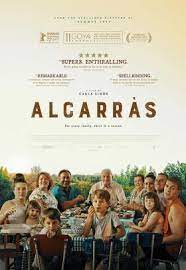
ALCARRAS
Spain, 2022, 120 minutes, Colour.
Jordi Pujot Dolcet, Anna Otin, Xenia Roset, Albert Bosch, Ainet Jounou.
Directed by Carla Simon.
Alcarras is a small town in Catalonia. It is a centre for agriculture, especially for stone fruit. This is a portrait of life in the town, in the orchards, families, the encroachment on the land by government, developers, and the setting up of vast solar panels.
The audience spends two hours mainly with a family, father and mother, the older son working in the orchard, the next daughter adolescent and self-conscious, and then a vigorous younger daughter who loves playing with her twin cousins and other children. The cast of the film is entirely non-professional (except for a sister of the writer-director, who plays one of the aunts). In fact, the performances seem very accomplished, the whole cast playing themselves with seeming professional aplomb.
We spend a lot of time with these characters, some audiences complaining that the story is repetitious, not always involving. Other audiences, including the jury at the Berlin film Festival 2023, was so involved that they awarded the film the top prize, the Golden Bear. For many audiences, especially those who enjoy documentaries about unfamiliar countries, they will be happy to spend these two hours in Catalonia, empathising with the characters (sometimes irritated by them), sharing the joys and the difficulties, the hard work, the picking of the fruit (and employing, when they can, some foreign fruit pickers from Africa…), family life at home, the annual festival in the town with song and dance. On the other hand, for audiences who like dramatic momentum, they will be perhaps wanting more.
The father is something of a tough patriarch. His wife is strong, gentle, supportive. The son is loyal but there is an underlying restlessness. The daughter is moody. The youngest girl quite vivacious and demanding. There are the twin cousins, the various in-laws, and the elderly aunts. Which means that the various generations of Catalonian life are well represented.
And the solar panels, being delivered, being laid out, the father of the family hostile, his relative an entrepreneur. And while there are scenes of joy in the village in celebration, there are also some powerful demonstration scenes against the companies, the picking of the peaches, transporting them to the city, shouts in protest, the pouring of the peaches on the road and driving over them to make the point. The other point is, of course, that with concern about climate change, the need for sun and wind for power, it means such developments as extensive solar panels to produce and channel energy. But, it is very disturbing at the end to see the machinery driving through the orchards, ploughing up the ground, destroying the trees.
The film offers an interesting opportunity to see and reflect on traditional families and the way they live and cope in the 21st-century but also to see the transitions in agricultural life, change for possible good, but some heartbreak in destruction.
1. The title, the town, Catalonia, agricultural, small town life, orchards and crops, modern encroachments?
2. The cast, non-professionals, the persuasive performances? Convincing?
3. The photography, beauty, the vistas of the town, the vistas of the fields and crops, the surroundings? Home life? Outings, village life, the celebration? The work in the fields, the harvesting? The protest? The cranes and the destruction of the orchards? The musical score?
4. The focus on the family, the father, age, relationship with his wife, the work on the orchards, the collaboration of the family, the different generations, the older patriarch and his life, the aunts, the same generation as the father, and the next generation, the teenagers and their reactions, work, moods, and the younger children and their play?
5. The orchards, the peaches, the workers, collaboration, the picking of the fruit, collecting? The farm and the machinery? The foreign workers, the marketplace? The father and his son working with his father?
6. Home life, old style, yet modern, the television, the music? The daughter, her age, the touch of rebellion, moods, practising her dancing – and ultimately refusing to join in the dense? The son, his age, friends, working with his father, prospects for the future? The mother, active, concerned, the household, support?
7. The old man, the past, his work, life, the generations, tired, sleeping? His role in the house? Going to the inn, playing cards with friends? Fragility?
8. The variety of aunts, the generations, their talk, remembering the past, work? The visitors from Barcelona?
9. Iris, forthright, with the twins, the other children, the range of games, make-believe and pretence, guns and sieges, the nature of play? The absence of the twins, the return? The mother and her concern, family alienations?
10. The change, the installation of the solar panels, the land being taken over, intervention of the government, the policy of energy production over crops? The father, his resentment, confrontations?
11. The choir practice, the celebration, everybody joining in the festivities, songs, performances? The Moody daughter and her refusing to join in? The son, his drinking, the accident and his father’s reaction?
12. The collecting of the peaches, the spilling, gathering, going to the protest, the farmers all joining, the demonstration, the placards, the authorities, the spilling of the peaches, driving over the?
13. The machinery coming in, digging up the fields, destroying the trees – for the solar panels?
14. The traditions of the past, the 20th century, developments in the 21st-century, and the threats to traditional agriculture and livelihoods?
Oppenheimer
OPPENHEIMER
US, 2023, 180 minutes, Colour.
Cillian Murphy, Matt Damon, Robert Downey Jr, Emily Blunt, Florence Pugh, Jason Clarke, Kenneth Branagh, Tom Conti, Alden Ehrenreich, Dane de Haan, Tony Goldwyn, Make on Blair, James D'Arcy, David Krumholz, Matthias Schwieghoffer, Michael Angaarano, Dylan Arnold, Matthew Modine, David Dastmalchian, Josh Peck, Benny Safdie, Gustaf Skarsgaard, James Urbaniak, Christopher Denham, Rami Malek, Olivia Thirlby, Casey Affleck, Harrison Gilbertson, James Remar.
Directed by Christopher Nolan.
 Oppenheimer confirms once again what a talented filmmaker Christopher Nolan is. And, while he has collaborated with his brother on previous screenplays, this is his solo work.
Oppenheimer confirms once again what a talented filmmaker Christopher Nolan is. And, while he has collaborated with his brother on previous screenplays, this is his solo work.
J.Robert Oppenheimer was a controversial character in his heyday, especially his years, 1942 to 1945, as head of the Manhattan Project, the building of the first atomic bomb, the testing of Los Alamos, and the decision to drop the bomb on Hiroshima and, then, on Nagasaki, 1945. As expected, these years are at the centre of this biography/portrait of Oppenheimer.
However, there is a great deal of material in this film before the Manhattan Project and a great deal afterwards. While the film does take a traditional approach to biography, tracing Oppenheimer’s early years and career, sequences are introduced in the first part of the film, into interrogations by members of a select committee, criticisms of Oppenheimer and his alleged communist connections. These sequences are filmed in black and white, as are sequences for a Senate hearing for politician, Lewis Straws, and issues of the development of nuclear weapons.
Cillian Murphy, who has shown talent in a variety of differing roles, brings Oppenheimer to life, resembling him in the various photos of his early years, unruly hair, smoking, then chain-smoking, gaunt. His parents migrated to the US from Germany, Jewish. Oppenheimer did not immediately appear as the genius he was to become, but went to Europe for studies, clashing with a professor in England, moving to Germany, meeting Niels Bohr, and some of the Germans who were to work on atomic developments for the Nazis. In the late 30s, he returned to the US and to Berkely, meetings with Albert Einstein.
At the opening of the film, the words, fusion and fission appear on screen. Most audiences will not be familiar with the mathematics and physics dramatised here, so many blackboards filled with formulae, but, by and large, the screenplay gives enough information for audiences to appreciate the science behind fission and fusion, the discoveries of the 30s, and their applications, especially for weapons in World War II, apprehension that the Germans would make the bomb, decisions concerning the war in the Pacific, the conflict with Japan.
Matt Damon appears as General Groves, responsible for the team to make the atomic bomb, interviewing Oppenheimer to lead the project, Oppenheimer not being the immediately likely head. Then there is the assembling of the range of scientists, experts in their field, some prima donna behaviour at times, moving into the New Mexico desert, familiar to Oppenheimer with his brother, bringing the families. And a whole town is built in the desert. We see the work and studies of the scientists, their life together, the technology as the bomb is built.
On the personal side, there is Oppenheimer’s meeting with Jean Tatlock (Florence Pugh), an edgy relationship, portrayed quite frankly, her communist associations, her mental state and influence on Oppenheimer. There is also Oppenheimer’s wife, Kitty, a biologist (Emily Blunt) coming to live of Los Alamos, their children, her forthright attitudes. There are scientist friends, as well is Edward Teller (Benny Safdie) who is committed to the hydrogen bomb. The scenes of 1945 are quite powerful, apprehensiveness at the testing of the bomb, finding safety limits to observe it, the lifting of the bomb to the high tower, the moments to countdown, the explosion in the fast fireball, the explosion pervading the sky and the atmosphere.
Then there are the issues of choosing a Japanese city for the dropping of the bomb. There is some footage of destruction in Japan but the film relies on the impact, visually, in sound, seen in the test at Los Alamos. The immediate repercussions are acclaim for Oppenheimer, the applause of his co-workers, featuring on the cover of magazines and papers, a visit to President Truman who dismisses Oppenheimer’s moral and emotional concerns as a “Cry-baby”.
The last section of the film focuses on the investigations, the hostility towards Oppenheimer, the withdrawal of his security clearance, the implications of his communist leanings and affiliations, the select committee interrogating him, with Jason Clarke especially effective as the chief interrogator. Oppenheimer is questioned, so is General Groves, Kitty, and various officials and scientists, some sympathetic to Oppenheimer, others not.
Finally, there is a Senate hearings concerning Lewis Strauss, initially favourable to Oppenheimer, to Einstein (Tom Conti), but growing hawkish after the dropping of the atomic bomb, eager to develop the hydrogen bomb, not against nuclear proliferation. He is played by Robert Downey Jr in one of his best performances, powerful, edgy, ambitious, hostile to Oppenheimer. And, as mentioned, the Senate hearing sequences are all filmed in black and white.
Nolan has drawn on a very large cast of strong character actors.
The film suggests ambiguity in Oppenheimer’s attitudes and stances, father of the atomic bomb, highly involved, but questions in the aftermath, against nuclear proliferation, questions of moral responsibility.
For audiences interested in a more documentary presentation of Oppenheimer himself, his work, the development of the bomb, the dropping of the bomb and its consequences, there is the documentary To End All War: Oppenheimer & The Atomic Bomb, an NBC production released in the same month as Oppenheimer, with Christopher Nolan himself as one of the interviewees. It could serve as a kind of review/discussion source for audiences to appreciate Oppenheimer better.
1. The impact of the film? The personality of J.Robert Oppenheim are, science background, the Manhattan Project, the testing of the atomic bomb, Hiroshima, the aftermath, interactions with anti-Communist investigators?
2. The work of the director, writing, directing, the large cast, the scope of the project, the impact for the 21st-century audience?
3. The structure of the film, the introduction to Oppenheimer, audience awareness of him and the Manhattan Project, the atomic bomb and the consequences, the nuclear era? The background of his studies in Europe? The scenes of the investigation, interrogations, black-and-white photography, their being intercut with his earlier life? The transition to the Manhattan Project? The detail? The test and the consequences? The aftermath, Pres Truman, official interrogations, the consequences for Oppenheimer?
4. The strength of Cillian Murphy’s presence and performance, resembling the photos of Oppenheimer, and the cigarette? The age range, younger, studying, in Europe, antagonism towards the professor, the injected apple, the encounter with Niels Bohr? With the German scientists? The range of his education? Theoretical rather than applied? The influence of Einstein?
5. Oppenheimer’s personal life, relationships, Jean Tadlock, Communist affiliations, the 1930s, the relationship with her, her behaviour, erratic, the meetings and discussions, the impact of the nude sequences? His meeting Kitty, marriage, children, the relationship, her strength of character and determination, attitude towards Jean? Life at Los Alamos, the family, her sense of betrayal? A sitting in on the interrogations, her urging Oppenheimer to be aggressive, the interviews and her challenge to the interrogators? Oppenheimer, women, Jean and the further meetings, her death? Kitty, the children, afterlife?
6. The European education, Oppenheimer as young, experimenting, going to meetings, asking questions, the antagonism and the attempted poisoning, the further education, the influences? His return to the United States?
7. Gen Groves, promotion, commission, Los Alamos, approaching Oppenheimer, the discussions, Oppenheimer weighing it up? Accepting? His work with Groves, collaboration, antagonism, clashing personalities, yet working together? The setting up of the town, Oppenheimer and the requirements, the logistics, the desert, Oppenheimer and the connection with his brother, New Mexico, his love for New Mexico, his brother under suspicion, Communist connections? The development of the town, the military, the scientists, the families, life in the town?
8. Physics theories, Einstein and relativity, other theoretical scientists, fission and fusion, the scientists gathering, moral stances and ethics, and atomic bomb, the Germans and their progress, the issue of Russian intelligence? The variety of personalities, collaboration, clashes, Edward Teller and his contribution, Isadore Rabi and the moral questions, the possible consequences and aftermath, yet the issue of the war, Nazi aggression, the Japanese? The progress of the developments, the bowls with the marbles indicating treatment of uranium? The audience following the physics, the development of the bomb?
9. 1944-1945, the strategies of the war, German surrender, the Japanese in the war in the Pacific, American involvement, the decision about the bomb, the discussions about the city’s, Kyoto excluded, decision for Hiroshima and Nagasaki? Oppenheimer and his participation and later interrogations?
10. The buildup to the testing of the bomb, whether it was ready, whether it would succeed? Frank Oppenheimer and he is skills in positioning the observers, the countdown, the tension, the blast itself, the special effects to communicate the blast to the audience? The fireball, fire, wind, the observers, the dangers, the effect? And the transition then to information about the attacks on Hiroshima and Nagasaki?
11. The final hour of the film, colour and black-and-white, prepared in the earlier part of the film, the special committee, prejudice against Oppenheimer, the personality of Roger Robb, his questions, manner, insinuations, concealing sources, aggressive? Gordon Gray residing, his stances? The member of the board and his interventions, his descent? The details of the questioning, the various personalities, General Groves, Isadore Rabi, Nichols, Kitty Oppenheimer…? The building up of the picture, the framing of Oppenheimer?
12. Post-war, the Soviet Union, the beginnings of the Cold War, the anti-communists atmosphere of the US, house un-American activities, the coming of Sen McCarthy, suspicions, linking guilt, persecutions? The perspective of communism in the 1930s, social unrest, the status of Stalin?
13. Lewis straws, the importance of his presence in terms of American defence? His relationship with Oppenheimer, initial collaboration, during the war, the sequence of watching Oppenheimer and Einstein talking (and the later flashback of what their subject was)? Straws, his young assistant, the interviews, the Senate hearing, straws and his ambitions, the war, after the war, his attitudes towards weapons, nuclear proliferation, the background of explaining the H bomb, Teller and his attitudes, American Arsenal – and the danger of nuclear proliferation?
14. The personality of straws, Robert Downey Jr’s performance, political, self-seeking, his assistant, his assistant becoming disillusioned, the information, given to the senators, the buildup to the vote, his not being appointed? The focus of the film on the bomb explosions, and the explosions between the conflict between Oppenheimer and straws?
15. Oppenheimer, questions about the making of the bomb, his moral stances, regrets or not, his self blaming, his being against nuclear proliferation, his subsequent career, the issue of his security clearance, the 1960s, the scene was Pres Truman dismissing him as soft, the mention of Kennedy voting against straws, and the finale with the medal, presented by Lyndon Johnson?
16. The overall impact of the film in terms of war, weapons, nuclear war, consequences? Moral issues? Relevance in the 2020s?
Summit Fever
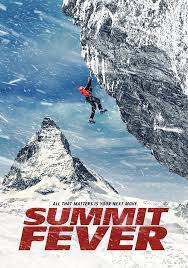
SUMMIT FEVER
UK, 2022, 115 minutes, Colour.
Freddie Thorp, Hannah New, Michel Biel, Ryan Philippe, Mathilde Warnier, Nancy Tate
Directed by Julian Gilby.
At the opening of the film, two meanings of the phrase, Summit Fever, are given, apprehensiveness in a situation, but also the drive in mountain climbers to reach the top.
This is a film principally for an audience who enjoys mountain climbing, whether in fact, or in dramas on screen. This makes it accessible and interesting to audiences of all ages who are climbing aficionados. But, for those not particularly interested in mountain climbing dramas, they will probably not persevere, appreciating the beauty of so much French Alpine scenery, even the dangerous climbing sequences, but, with the characters in their 20s, their own personal dramas and searching, rather prolonged in a film of almost 2 hours, they would probably give up and move on to another film.
Which means then that a review of the film is mainly praising of a great deal of breathtaking photography, the beauty of the French Alps, the snow, the mountain peaks. And, as expected, there are a lot of climbing sequences, dangers, losing grip, falls, people trying to break records – and falling to their deaths, storms, the hazards of whether, dangers and desperate rescues, friends committing themselves to help one another in harrowing situations.
The stories of the climbers themselves are what we might call, routine.
The cast is young although the older generation is represented by Ryan Philippe as a seasoned climber. The film was written and directed by British Julian Gilby, who has a passion for mountain climbing.
Sinatra: Being Frank
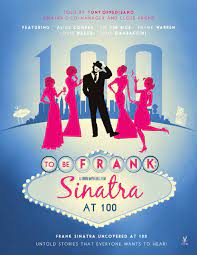
SINATRA BEING FRANK
US, 2015, 81 minutes, Colour.
Directed by Simon Napier-Bell.
Rock manager for many artists, Simon Napier-Bell, writer, speaker and documentary filmmaker, made this very interesting and informative documentary about Frank Sinatra for the centenary of his birth, 2015.
In 80 minutes, the director has furnished the essential biography of Sinatra and has created a portrait of Sinatra as a person, as a singer, as an actor, as a 20th-century celebrity.
The initial emphasis is on Sinatra and his singing abilities which were acknowledged over the decades in the 20th-century and are still acknowledged in the 21st-century. There is his Hoboken, New Jersey origin, his family, Italian background, his father has not supportive of his ambitions to be a singer. He moved to New York in the mid 30s, with the singing group, recognised, small in stature (he does, in media interviews, explain the difficulties of his birthing and his grandmother reviving him but his continuing to be small), but seen initially with a strong ego (stronger throughout the years) in giving information, interviews. He is seen by Harry James, leader of his orchestra who promotes him. And this leads to work with bandleader Tommy Dorsey in the early 1940s, Sinatra saying he observed Dorsey’s skill in breath control and planning the trombone as a way of understanding his own singing breath control. And then came the recordings.
The film then moves on to Sinatra as an actor, is always keen awareness of the times, knowing that personalities needed broader recognition and that this came through the movies. After a few films, many with guest appearances, Louis B Mayer giving him jobs at MGM, especially Anchors Away and Tell the Clouds Roll By.
And, throughout the film career, the recordings, and his initiatives in working with arrangers like Nelson Riddle, and his creation of album collections, somewhat new at the time, but continuing throughout his career, millions of sales, millions of fans, many awards.
The film also offers something of his relationships, his early marriage to childhood friend, Nancy Barbato, and the birth of his children. Then there is the attraction to Ava Gardner and their being married, exhilarating for some years, but Ava Gardner noting that they were too alike for it to last. Then there is the puzzle of his attraction to Mia Farrow in the 1960s – and the indication that she set her cap at him and exercise some control. This did not last. In later life, he met Barbara, the wife of the Zeppo Marx and married her, she understanding him and supporting him as he grew older.
There is the famous slump around 1950, sacked by Louis B Mayer for slighting him, difficulties with recording companies, small film roles, and his agitating for a role in From Here to Eternity, Ava Gardner canvassing head of Columbia, Harry Cohen’s wife, the film noting that in his Oscar acceptance speech, Sinatra did not mention Ava Gardner. The mid-1950s were important with such films as The Man with the Golden Arm, Guys and Dolls. Unfortunately, for film fans, the line of films, starring roles does not continue, especially with the number of detective stories he made during the 1960s.
Then there is the question of the Mafia connections, Sinatra in interviews explaining the Italian family background, his meeting with various Mafia chiefs, taking this for granted. The other area of Sinatra’s life that is not treated in the film is the 1960s Rat Pack, his friends, the performances, their films together.
Rather, the theme of the film is how Sinatra adapted to every decade, from the early Bobbysoxers fandom, to popular songs of the 1950s, adapting to the different rhythms of the 1960s, and even more adapting during the 1970s, culminating in New York, New York, and this documentary saying that the lyric, “if you can make it there, you can make it anywhere” does sum up Sinatra’s career.
During the 1980s and into the 90s, he did make some albums, not always successful, and also many appearances, fans always loyal, even the younger generations. Sinatra had the nickname The Voice, knew how to control his voice, had great sense of timing with lyrics, Sinatra as something of a singing icon of the 20th century.
Mindscape/ Anna
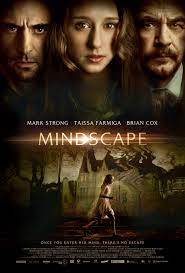
MINDSCAPE/ ANNA
Spain/UK/US, 2013, 99 minutes, Colour.
Mark Strong, Taissa Farmiga, Saskia Reeves, Richard Dillane, Indira Varma, Noah Taylor, Alberto Ammann, Brian Cox.
Directed by Jorge Dorado.
Mindscape is the name of the company for memory detectives, detectives with psychic powers, who meet with clients, hypnotise them, the clients reliving their memories, the detective entering into the memories, observing, understanding, and with a control to get the client to come out of the memories as required. This is an intriguing premise for a thriller, the audience accepting its possibility or plausibility – but, not real in the sense of the detective entering into the memory.
The film is a Spanish production, in English, set in the United States, with a mainly British cast, led by Mark Strong, a long-time character actor with many powerful performances, this one of his most convincing. Brian Cox is in support as the CEO of Mindscape. Noah Taylor appears at the end as another memory detective.
Taissa Farmiga is Anna, a 16-year-old and, daughter of a wealthy mother, widow, who has married again. They are disturbed about Anna, her mother considering her as “gifted”, her stepfather wanting her to have care in an institution to deal with her erratic behaviour. As the film opens she is on hunger strike. And, there is a whole surveillance system throughout the mansion and she is observed by a nurse.
Mark Strong is John Washington, a memory detective with skills but who has experienced the suicide of his wife after the quick death of their newborn. He is commissioned with the case by the head of Mindscape. The bulk of the film is John dealing with Anna, her trusting him, collaborating with him, the range of her memories, as a little child, at school, bullied, friends, the seeming sexual advances of the teacher… John explores the case, examines the files, believes Anna. The climax of the film is his being summoned to the house, mysterious happenings, and her fleeing, and John discovering a complete set up with his taking the blame for what has happened, his imprisonment. Which, of course, changes audience perspective about Anna and her collaboration and her manipulation.
For audiences who accept the premise of memory detection, quite an interesting thriller.
1. Psychological science fiction? Psychological exploration? Detective investigation?
2. The American setting, the British and international cast, the Spanish director, filming in Spain?
3. The plot as intriguing? The plausibility of the plot?
4. John Washington, strong presence of Mark Strong, the opening sequences in the mystery, his presence in the house, his wife and her behaviour, the bath, the violence, her fears? His observing? Her not seeing him? His being removed from the scene?
5. The revelations about memory detection, the process, hypnosis, the memories, and the detective present in the memories, observing, not seen by the subject, issue of truth, invented characters, stopped clocks…? The Mindscape company, Sebastian, running the company, employing John, John and the effect of his wife’s death, getting the job with Anna? The later presence of Peter Lundgren being a mind detective for John himself?
6. The case, the rich family, Anna, 16, the clashes with her mother, her stepfather and his behaviour, sexual? Her being gifted, her going on hunger strike, her powers, manipulative? The prospect of going to an institution? Judith and the monitors, Judith observing her behaviour and reporting?
7. John, sad, needing money, the phone calls about selling his house, Sebastien’s pressure? John taking the case, going to the house, the discussions with the parents? Meeting Anna, hunger strike, her drawing on sketches, her poise?
8. The film and the sequences of reliving Anna’s memories, John in them, observing? Anna as a little girl, her stepfather, with her mother, the letter opener, the gash on the hand? John observing, probing, his manner, questions? Anna agreeing to have the memory detection? The memories of her at school, the three girls, persecution, the character of Mousy, the trio critical of mousy, Anna and her abandoning of her? The memories of the teacher, the implications of his sexual behaviour? And the effect on Anna? John going to visit the teacher in prison, and the range of sexual photos on the computer?
9. Sebastian in one of the memories, John accosting him, blaming him? The blame on the teacher? The stepfather?
10. John, taking the seriously, wanting to continue, Sebastian letting him continue? His getting Anna’s files, searching in them, the character of Mousy, Anna and her notes, writing?
11. The buildup to the crisis, his being summoned by Anna, going to the house, the surveillance, locked in the room, the power going off, his coming out, the mother unconscious, the blood on the floor, going out into the woods, pursuing Anna, and of the mysterious figure, the call to the police, meeting with Anna, the blood on her hands, her apology, running off, disappearing?
12. The police, John with blood on his hands, the implausibility of his story, his 911 call, Anna’s 911 call and denouncing John? His explaining the situation, the audience having seen it, sympathy for him, the police blaming him, in prison? Peter Lundgren, and the audience having seen John’s memories, and Lundgren coming in, observing, unable to help?
13. The message from Anna, the newspaper and the photo, a note of thanks?
14. John, the experience, probing and is character, her psyche, her control and manipulation?
Barbie

BARBIE
US, 2023, 114 minutes, Colour.
Margot Robbie, Ryan Gosling, America Ferrara, Helen Mirren, Kate MacKinnon, Ariana Greenblatt, Michael Cera, Will Ferrell, Kingsley Ben Adair, Issa Rae, Rhea Perlman Alexandra Shipp, Emma Mackey, Emerald Fennell, Simu Liu, Scott Evans, John Cena, Ann Roth.
Directed by Greta Gerwig.
Once there was Pretty in Pink. Now pink everywhere…
The tone is set to prepare our response to Barbie with a parody of the monolith and the apes in 2001, little traditional girls smashing their dolls overawed by the statuesque Barbie. This is emphasised by the sardonic expression of Helen Mirren’s voice-over commentary. We are immersed in Barbieworld, the parody of the sign of BARBIEWOOD, and images of Barbies on Mount Rushmore! In this living toy world, today is the best day, so was yesterday, so will tomorrow. Writer-director, Greta Gerwig, has said how she talked with Peter Weir and it would seem that this toyland of niceness is parallel to The Truman Show and Truman’s genial, if sheltered, life. But, with Margot Robbie sparkling as Barbie, song and dance routines, and lots of doll -like behaviour, she suddenly mentions death to general Barbie horror. She consults Weird Barbie (the sardonic Kate MacKinnon) who sends Barbie (who comes to realise she is “Stereotypical Barbie” because, as happened in the real world with the Mattel company, there are Barbies for all seasons, for all the races, for all builds (and a lot of American and British cast enjoying embodying these Barbies) on the journey into the Real World.
In this Barbie world, many of the Barbies are high achievers, including the president, an author, scientist. Kens (and just as many Kens as Barbies in form, race, abilities…) But the Kens are preoccupied with themselves and their own rather vain images. The lovelorn Ken (Ryan Gosling having to do a lot of the jokes and parody turns) hitches a ride into the Real World. Barbie is on a quest to meet her real-life owner of the past, a secretary and designer at the Mattel company, played strongly by America Ferrara, with her rebellious daughter (Ariana Greenblatt) and becomes more aware of the complexities of actual living (including sexual harassment). But Ken goes to Malibu, tries to be a doctor without qualifications, discovers the Patriarchy after he sees some horse-righting and enjoys developing macho attitudes. He goes back to Barbieworld and transforms all the Kens into vain strutting types, and turning all the Barbies with their talents into Bimbo Barbies at the beck and call of the Kens.
In the meantime, the Mattel company (allowing itself to be sent up) are concerned about Barbie on the loose. They go into aggressive mode, all the Board on rollerskates, led by the CEO, Will Ferrell in one of his manic performances.
Barbie goes back to Barbieworld with her owner and her daughter, dismayed at the male takeover, Ryan Gosling is Ken running things, ineptly. So, a mission to overcome all the brainwashing of the Barbies, getting them back to themselves, asserting themselves and their authority, using the tactic of getting the Kens to fight among themselves (quite elaborate choreography for the battles and confrontations). Down with the patriarchy.
Some commentators have mentioned that there are many preaching moments throughout. There are. And in many areas they would be well needed. The best is in a long litany of critique of macho Patriarchy by America Ferrara. And Margot Robbie also gets this kind of speech. However, there is a pleasing ending, with veteran actress Rhea Perlman as the creator of Barbie, reminiscing about her daughter, the doll modelled on her with her name, but the reality of her daughter having to grow up, to become a woman, in a man’s world, but to stand up for herself believing she could be anything she wanted to. Amen.
(It would be very interesting to be a fly on the wall to hear conversations between young women and their boyfriends about women and the patriarchy after their seeing this film.)
1. Barbie dolls for more than 60 years? The original, the stereotype, over the decades the many variations on Barbie? Can, in relationship to Barbie? The development of many Kens?
2. The promotion for this film, marketing success, and instant worldwide success?
3. The attraction for audiences, for women and memories, four girls, dolls, toys, playing with the dolls? The role of the Ken doll? The opening, 2001: A Space Odyssey, Margot Robbie’s Barbie appearing like the monolith, little girls smashing their dolls? Then the tone of the voice-over commentary throughout – Helen Mirren and her tone? Preparing the audience for the critique?
4. The technical quality of the film, the recreation of Barbies world, in pink, the animation backgrounds, the settings, homes, events, bills nights, costumes and decor? The choreography and the dancing? The choreography of the Kens confrontations at the end? The contrast with the real world, California, LA, Malibu and the beach, the corporations and buildings…?
5. The musical score, the range of songs, song and dance routines, Barbie songs, kens songs, and the message of the lyrics and commentary on the themes?
6. Margot Robbie as Barbie, pretty in pink, statuesque, her voice store audience, every day being nice, her frequent changes of clothes, the daily routine, floating down to wherever she wanted, mimicking the meals like the meals that little girls with their dolls? The range of Barbies, beauty, race, shapes, wheelchair, the range of Barbies? And the range of Kens? Every day being the best and happiest? The dance, Barbie mentioning death, the reaction, Barbie covering? The discussions with the other Barbies, her going to see Weird Barbie, and the story visualised of what had happened to her?
7. Weird Barbie, her appearance, the splits, somersaults, listening to Barbie, the advice, to go to the real world?
8. Barbie, preparing to go to the real world, her car, the talking with Ken, his being one among many, the attraction to Barbie, nice but gawky Ken, is hitting the ride, singing, Weird Barbies description of all the vehicles and trouble, including space! But arriving in California, LA?
9. Ken going off on his own, his background at the beach, if not qualified to be a lifesaver, presuming he could do anything, the encounter at the hospital with the doctor, not qualified for any job? Seeing the image of the horse riding, seeing the horses, his discovery of the Patriarchy, enjoying it, indulging it? His return to Barbie world, all the other Kens, persuading them, brainwashing the Barbies, there becoming bimbos the service of the men? The men taking over the presidency and governments? The subservience of the Barbies?
10. The Mattel company, the secretary and her designs, negative images? The board meeting, the CEO, will Ferrell comedy, the messenger about Barbie and Ken in the real world, the reaction, financial considerations, the pursuit, on the rollerskates, discovering Barbie, the CEO changing his mind, the financial possibilities?
11. Barbie on a quest, to seek her under, the portrait of the secretary, the alienation of teenage daughter, the clashes, memories of Barbie in the past, the secretary and her love for Barbie, confiding in her, discovering her, the meeting, the joy, a new quest, to return to Barbie world and female assertion?
12. Audience response to the principles of male-female, female-mail equality? The realities in the real world? As exemplified, the sexual harassment and Barbie socking the harasser? The all-male Board of the company? The presupposition is? Judging vain match our attitudes?
13. The return to Barbie world, the three women, in the car, the initial hostility of the daughter, the discussions, the memories, the daughter won over? Their dismay to see all the Barbies losing their powers and talents, at the service of the Kens? The various speeches, preaching to the audience, the secretary and her long litany of dominating male attitudes? Barbie and her speech?
14. The confrontation with the kens? The easy life, hedonistic, the challenge? The disregard of the women’s ideas?
15. The plan, the debriefing of all the Barbies, their resuming their real selves, abilities? Disturb the Kens so that they rival each other, the comedy of the tactics, Ken and his sloppy house, his description of it, taking it from Barbie? Setting the Kens amongst themselves, the rivalries, the confrontations, the fights, their forgetting about governance?
16. The Barbies themselves again, subduing the men, and the assertion of female equality, abilities, governing…? The Barbies growing up into women, the audience left wondering about the Kens?
17. Barbie and her meeting with Angela, the friendly meeting, Ruth appearing again, the revelation about her creating Barbie, calling it after her daughter, her daughter having to grow up, to be a responsible woman? And this reassurance for Barbie – and for the audience?


